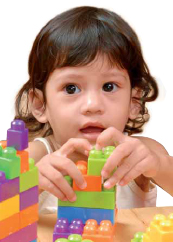He will not stop crying. Every day, it is the same story: he comes home from school, throws his bag on the floor and bursts into tears. You have tried everything – bribing him with a year’s supply of ice-cream, threatening to cut off all TV privileges, cajoling him, “All the big boys love going to school! Don’t you want to be a big boy too?”
But nothing works. Your child still refuses to go to school.
“Sending him to school’s like sending him to the slaughterhouse,” you lament. “He says he has no friends, the teacher’s mean and some boys are picking on him. I don’t know! Maybe that school’s just not right for him if he’s having such a rough time…”
The first few weeks of formal education are usually that way: rough. After all, your child has just been rudely snatched from his warm cocoon and tossed into an alien environment full of rules and regulations, strange adults and even stranger little kids.
For the first time in his young life, your child is faced with a hostile situation – the first of many that will come his way. So, how will he cope? Will he be one who goes through extremely difficult times and emerge not only unscathed but well-adjusted and successful, or will he be one who breaks down even under the mildest pressure?
It boils down to how resilient your child is.
WHAT IS RESILIENCE?
Resilience is the ability to bounce back from adversity. Getting back up on the horse after you hav fallen off, as the saying goes.
“When we say resilience, many of us think of people who’ve survived major crises like the flood o the tsunami,” says Dr Goh Chee Leong. “The truth is, any child in any setting will face challenges. Our role as parents is to prepare our children to cope with life, which has its fair share of challenges and difficulties even without the presence of large-scale disasters!”
RECOGNISING A RESILIENT CHILD
So, what are the traits of a child who is able to bounce back from adversity?
Independence
Even from a young age, a resilient child is able to do things for himself rather than be overly dependent on others. For instance, a resilient five year old child who is learning to read and write may struggle and become very frustrated, but is still determined to do it himself despite offers of help from his parent or teacher.
Problem-solving skills
A resilient child is action-oriented.When faced with a problem, he is able to work out what the problem is, come up with different ways to solve the problem, make a decision and carry out the solution.
Social competence
Social skills are an extremely important trait of a resilient child. He knows how to draw on his resources in order to overcome problems, and one of the key resources is people. He is able to communicate well, forms friendships easily and generally gets along well with others.
| Are Resilient Children Made Or Born |
|---|
|
Dr Teoh answers, “Resilience is really a set of strategies, so no child is born ‘more resilient’ than the next. A child can only be born with certain personality traits that may make him more resilient. For example, a child who’s born with an easygoing personality is naturally more flexible and generally easier to get along with. Because sociability is such a major aspect of resilience, this child will be more resilient as he grows up.” You cannot control the traits nature decides to bestow upon your child, but you can nurture the skills of resilience in him. Resilience is a dynamic quality, not a permanent capacity, so take steps to ensure that your child continues to grow in resilience. The rest of this article shows you how. |
| How Much Is Too Much? |
|---|
|
Ever heard the expression: “What doesn’t kill you makes you stronger”? Well, some parents have and they take it a little too literally. While some children are too pampered, others are thrown into the deep end of the pool and expected to start swimming. Immediately. Dr Goh advises parents to strike a balance. “You need to discern when to protect and when to expose your child to certain challenges,” he says. “Protect your child but not to the point where you deprive him of any challenges. At the same time, don’t be overly harsh! There are certain situations that your child is simply too young to handle on his own. For instance, if your seven year old child is being physically abused by his teacher or bullied by gangs of older students in his school, it is important that we step in to help him deal with the situation.” |







Comments